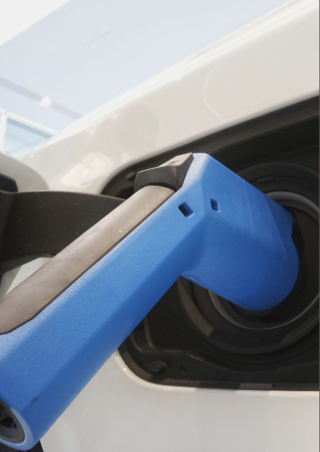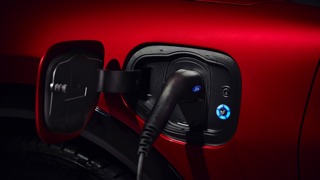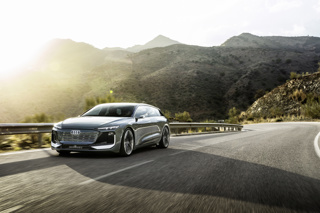Members of the Climate Group’s global initiative EV100 have committed to adopting 5.5 million electric vehicles (EVs) by 2030.
The fleets, which includes the likes of AstraZeneca, EDF Group and HP, have already taken delivery of 209,000 EVs and installed more than 20,000 charging points across 3,100 locations in 74 markets, according to a progress report published today (Wednesday, March 23).
It also highlights the three biggest barriers companies encounter on their way to mass EV adoption. A lack of reliable charging infrastructure, the higher up-front cost of EVs, and the limited variety of vehicles on the market are limiting further progress.
Some three-quarters (78%) of EV100 members believe that supportive policies from state, regional and city governments are vital to creating the right political climate for systematic change.
Strong policy support, in particular clear direction-setting in the form of internal combustion engine (ICE) phase-out dates and zero-emission vehicle (ZEV) mandates, are needed to help businesses invest with clarity and confidence in the EV transition.
Sandra Roling, head of transport at the Climate Group, said: “Businesses are increasingly viewing a transition to EVs as a necessary step in their drive towards net zero.
“We need their ambition to be matched by a wider range of governments, auto manufacturers and businesses across the globe.
“For the EV transition to go further, faster – which it must if we are to limit global temperature rises to no more than 1.5 degrees - charging infrastructure must be built out and manufacturers must expand production and offer a greater variety of EVs.
“Governments also need to provide clear direction in the form of phase-out dates and ZEV mandates.”
She continued: “Our EV100 Progress and Insights Report, released today, shows that businesses are making real progress on their commitments to electrify their fleets by 2030.
“We will continue to raise the collective business voice to remove barriers to further adoption and help accelerate the transition.”
The report highlights key achievements in international markets, including the UK which leads with the largest number of corporate vehicles committed, at 90,000.
The UK also leads the way with committed charging locations at almost 1,000 sites.
However, despite the positive long-term direction of EV uptake in the UK, continued efforts are necessary to ensure the UK maintains its world leading position, says the report.
For example, 82% of the UK-based members say that a lack of charging infrastructure is a ‘significant’ or ‘very significant barrier’ to greater EV adoption in the UK.
In the EU, commitments now total more than 215,000 vehicles, and 30,300 of these are already in operation.
More than half (56%) of EV100 members with fleets across the EU state that charging infrastructure is a significant issue.
Andy Leeden, global fleet manager at AstraZeneca, said: “Despite increases in UK public charging infrastructure there remains significant uneven geographical distribution of charging points across the UK.
“We need to see the acceleration of charging infrastructure deployment to match increasing battery electric vehicle (BEV) registrations.
“This is important to support future widespread BEV adoption for people who do not have access to charging either at home or the workplace.”
The 2022 EV100 Progress and Insights Report can be downloaded here.
> Interested in comparing electric vehicle data? Check out our EV tool.
> Interested in ensuring the efficient use of EVs. Check out our dedicated editorial sections: Insight & policy | EV news | Charging & infrastructure | Costs & incentives | Benefit-in-kind | EV case studies | EV road tests
























Login to comment
Comments
No comments have been made yet.